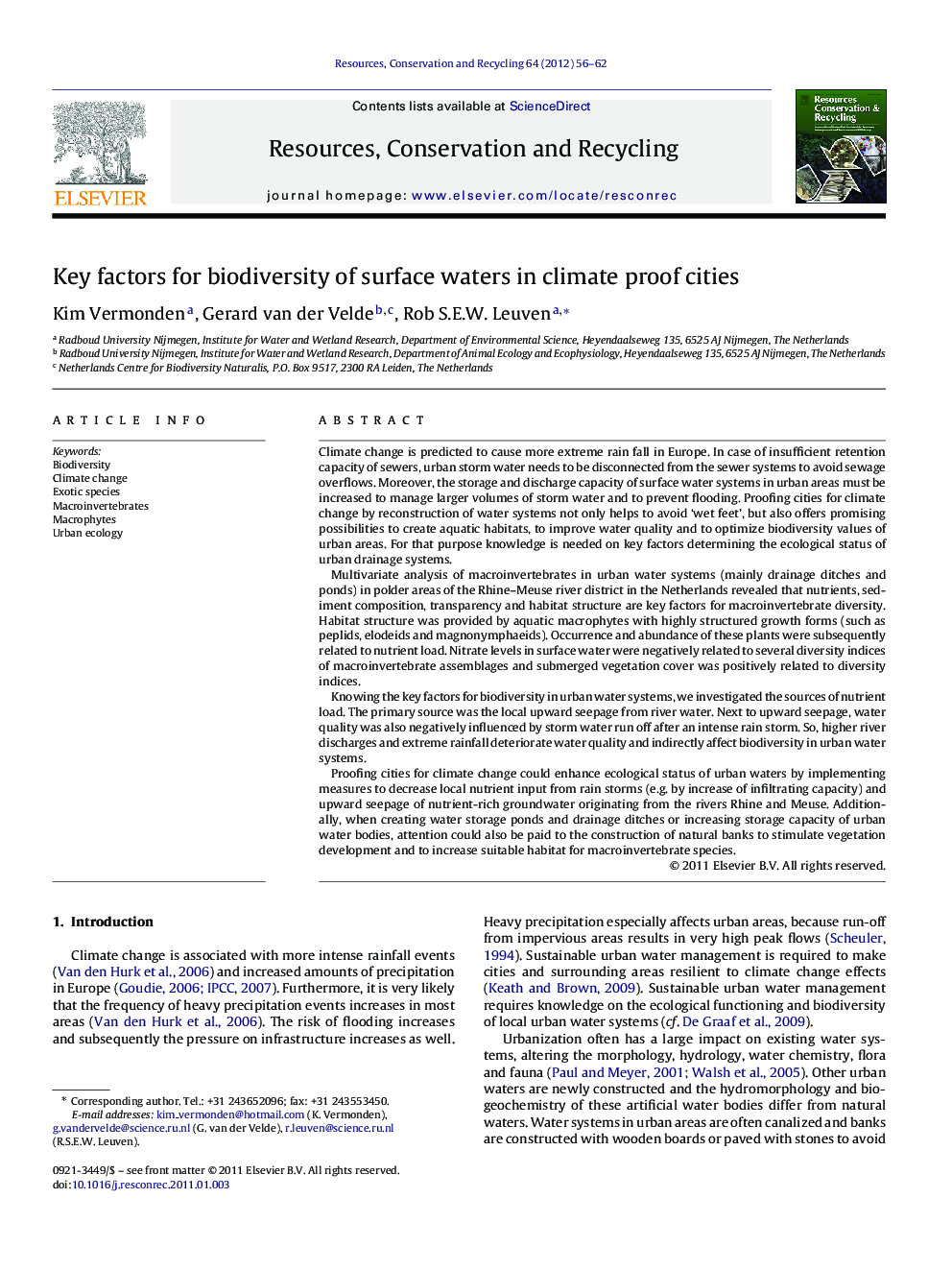| کد مقاله | کد نشریه | سال انتشار | مقاله انگلیسی | نسخه تمام متن |
|---|---|---|---|---|
| 1063220 | 1485725 | 2012 | 7 صفحه PDF | دانلود رایگان |

Climate change is predicted to cause more extreme rain fall in Europe. In case of insufficient retention capacity of sewers, urban storm water needs to be disconnected from the sewer systems to avoid sewage overflows. Moreover, the storage and discharge capacity of surface water systems in urban areas must be increased to manage larger volumes of storm water and to prevent flooding. Proofing cities for climate change by reconstruction of water systems not only helps to avoid ‘wet feet’, but also offers promising possibilities to create aquatic habitats, to improve water quality and to optimize biodiversity values of urban areas. For that purpose knowledge is needed on key factors determining the ecological status of urban drainage systems.Multivariate analysis of macroinvertebrates in urban water systems (mainly drainage ditches and ponds) in polder areas of the Rhine–Meuse river district in the Netherlands revealed that nutrients, sediment composition, transparency and habitat structure are key factors for macroinvertebrate diversity. Habitat structure was provided by aquatic macrophytes with highly structured growth forms (such as peplids, elodeids and magnonymphaeids). Occurrence and abundance of these plants were subsequently related to nutrient load. Nitrate levels in surface water were negatively related to several diversity indices of macroinvertebrate assemblages and submerged vegetation cover was positively related to diversity indices.Knowing the key factors for biodiversity in urban water systems, we investigated the sources of nutrient load. The primary source was the local upward seepage from river water. Next to upward seepage, water quality was also negatively influenced by storm water run off after an intense rain storm. So, higher river discharges and extreme rainfall deteriorate water quality and indirectly affect biodiversity in urban water systems.Proofing cities for climate change could enhance ecological status of urban waters by implementing measures to decrease local nutrient input from rain storms (e.g. by increase of infiltrating capacity) and upward seepage of nutrient-rich groundwater originating from the rivers Rhine and Meuse. Additionally, when creating water storage ponds and drainage ditches or increasing storage capacity of urban water bodies, attention could also be paid to the construction of natural banks to stimulate vegetation development and to increase suitable habitat for macroinvertebrate species.
Journal: Resources, Conservation and Recycling - Volume 64, July 2012, Pages 56–62